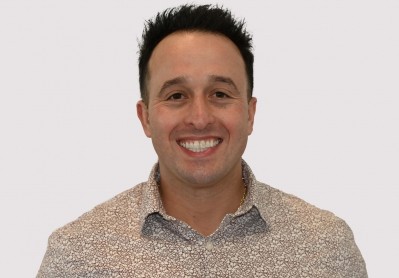With half of alcoholics refusing to abstain, Kinnov's new drug to fight addiction couldn't come soon enough

Historically, the recommended treatment has focused on abstinence and achieving complete sobriety. However, having observed this method’s lack of efficacy, Emmanuel de Rivoire, CEO of Kinnov Therapeutics, (pictured below) has agreed to discuss an alternative treatment strategy with OSP.
This new approach, he says, aims to reduce levels of alcohol consumption amongst heavy drinkers, through a once-daily tablet that has shown superior efficacy in reducing alcohol consumption at phase 2. In this article, de Rivoire explains the role of such a treatment and the mode of action harnessed by the drug.
“Addiction is becoming a serious socio-economic problem and is prohibitively expensive to treat”, he says.
“According to the World Health Organisation, 280 million people suffer from AUD worldwide, causing more than three million deaths each year. Yet, few therapeutic agents are available and efficient on these pathologies of addiction, to date, creating a huge unmet medical need.”
He adds the disorder is defined by an impaired ability to stop or control alcohol use despite adverse social, occupational, or health consequences. Recognised as a neurological condition, AUD can be mild, moderate, or severe. Lasting changes in the brain caused by alcohol misuse perpetuate AUD and make individuals vulnerable to relapse.
Half of heavy drinker refuse abstinence
He says: “Most people who suffer from AUD are untreated (<10%) because there is little available to them that inspires them to seek treatment nor for clinicians to suggest treatments. 50% of heavy drinkers refuse to consider abstinence. However, it may be that they can consider reducing their intake. It is therefore clear that safe, widely available, affordable, and effective products are desperately needed.”
Fortunately, attitudes towards the treatment of AUD are shifting, says de Rivoire .
“The previous emphasis on abstinence upheld by clinicians, payers, advocates, and regulators is changing due to the lack of efficacy of this approach.
“Moreover, a strong correlation has been identified between average daily alcohol consumption in grams and the associated lifetime risk of dying from a disease caused by alcohol use amongst males (Rehm et al. 2018).
“With the health and socio-economic benefits of reducing alcohol consumption becoming clearer, it is increasingly being considered an endpoint in the patient treatment pathway.”
KT-110 conceived by addiction experts
Kinnov Therapeutics has been working for ten years on the development of a new treatment with a unique and original mode of action. KT-110 was conceived by addiction experts in direct response to the challenges faced by AUD sufferers.
Designed by Kinnov and protected by a composition-of-matter patent, KT-110 is based on the pharmacological concept proposed by professor Jean-Paul Tassin at INSERM and Collège de France, Paris.
KT-110’s mode of action is novel to Alcohol Use Disorder (AUD) and works by simultaneously modulating the noradrenergic and serotonergic brain receptors that counteract the neurobiological processes involved in addiction by regulating the secretion of dopamine. KT-110 combines two well-known drugs (cyproheptadine and prazosin) that act on these key receptors. By regulating the brain’s reward circuit, KT-110 allows patients to regain control of their alcohol consumption, to significantly reduce or even stop it.
The simultaneous inhibition of the two receptors removes the addicting effects of substances by acting at the very heart of the process - dependence - whilst avoiding side effects such as those produced by antipsychotics.
The phase 2 study for KT-110 showed that the treatment can halve alcohol consumption amongst heavy drinkers in three months.
The multi-centre, randomised, double-blind, placebo-controlled phase 2 clinical trial included 154 patients suffering from severe alcoholism and was conducted in 34 investigating centers across France. The primary endpoints were a reduction in alcohol consumption and the secondary endpoints were the number of days of high consumption (HDD), cravings, and depression.
The trial showed that KT-110 has superior efficacy in significantly reducing alcohol consumption in heavy drinkers by 24 to 30 grams (2.6 to 3 drinks) per day compared to the placebo. This increased to 50 grams (5 drinks) per day compared to the baseline measure at the start of treatment.
de Rivoire says patient adherence and compliance are known to be significant hurdles in addiction.
Once daily tablet favoured for convenience
He says: “The formulation of the drug can often be key to ensuring patients continue the treatment regime, and a once-daily tablet formulation is favored due to its convenience. Being under the care of a medical professional is also important for patient adherence, so KT-110 will be a prescription medicine that clinicians may wish to combine with other methods of reducing cravings, such as digital apps and platforms.
“The phase 2 pilot trial provides strong clinical proof of this therapeutic concept, showing that KT-110 provides patients with a significant improvement in the parameters of alcohol addiction, with reduction figures higher than those reported by existing treatments, in a context of good tolerance.”
KT-110, de Rivoire, and Kinnov believe, that its innovative mode of action, signals the emergence of a promising new approach to treatment that will improve patient management and address unmet needs in severe AUD along the patient pathway.
Addiction becoming serious socio-economic problem
He added: “The phase 2 study provides compelling evidence of KT-110's effectiveness and tolerability, and the effect size observed is notably superior to that of currently available treatments for AUD. As a result, Kinnov Therapeutics is in talks with the FDA and European regulators to move the drug into late-stage clinical trials.”
Addressing alcohol dependency remains a formidable challenge, so diversifying the therapeutic options available to patients and clinicians is of utmost importance. Owing to its broad mechanism, KT-110 may also have the potential to treat other addictions, such as cocaine-use disorders.
With KT-110, Kinnov says it hopes to make a real difference in the care and quality of life of patients suffering from the severe consequences of alcoholism. Armed with these promising and convincing results, the company is actively seeking a commercial pharmaceutical partner to continue the development of KT-110 through phase 3 trials and drive its commercialization, to enable patients to gain access to this innovative treatment.
Addiction is becoming a serious socio-economic problem. According to the World Health Organisation, 280 million people suffer from alcohol use disorder worldwide, causing 3.3 million deaths each year. The very high-risk level population comprises 11.4m people in Europe and the US (respectively 5.2 and 6.2m). Yet, few therapeutic agents are available and efficient on these pathologies of addiction, to date.

























